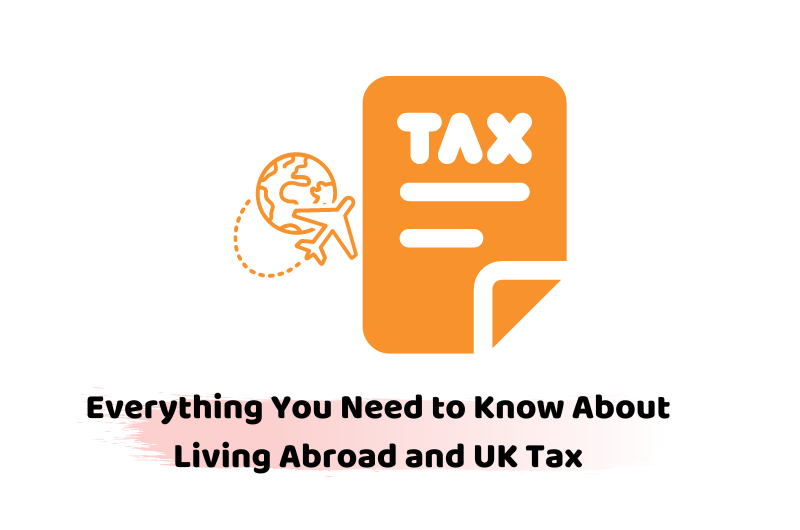If you are living abroad and UK tax laws are applicable on the income you have earned in UK or abroad, you need to know about certain requirements. Many people from the UK live abroad temporarily or permanently. But they don’t know about the UK tax laws.
In this blog, we will walk you through the tax laws for UK residents and Non-UK residents to make things crystal clear for each of them. As a result, overpayment or tax avoidance can be prevented by getting knowledge about the basic tax laws for people living overseas from the UK.
Moreover, we will discuss how the overseas British can pay their taxes timely to the HMRC after informing them about their leaving UK. So, let’s start our discussion!
Get the best tax advising services from qualified, accredited and certified tax advisors at Accotax to sort out your tax issues while living abroad. Feel free to contact us.
UK Tax Laws For UK Residents
HMRC has defined the criteria for being counted as a UK resident properly and clearly. A UK resident is one who lives for more than 183 days in the UK. Moreover, he has spent at least 90 consecutive days in the rental property in which he lives. Moreover, the person has spent 30 days in a tax year in the rental property. In other words, if you live for more than half a year in the UK and spend the rest of the year abroad, you are legally a resident of the UK for tax purposes.
On the other hand, if you occasionally reside in the UK and you have moved to another country permanently, you will not be considered a UK resident. However, if you have immigrated to another country from the UK, but still have a business in the UK and you’re earning an income from this business, you will have to pay taxes on it. In this case, you will have to take into account the personal allowances and National Insurance Contributions (NICs) as well. For this, they need to fulfil the criteria of working for more than 274 days in the UK to be a taxpayer.
Living Abroad and UK Tax as a UK Resident
Furthermore, UK residents might pay more tax if they are paying taxes in their home country as well as abroad if they are earning abroad. All the income earned abroad might be subject to double taxation. For this, you can fill out the DT form and submit it to the respective authorities to avoid double taxation.
You will pay tax on your pensions unless you transfer them to your country of residence. On the other hand, all the interest is on your savings and rental properties. Similarly, UK residents have to pay tax on all their earnings from their job or business in the UK.
Interestingly, UK residents also have to pay income tax on all the earnings they are earning from abroad. For this, they need to follow the Double Taxation Agreement (DTA) to avoid double taxation. UK has signed DTA with a number of countries. So, you can use it to avoid overpayment in taxes.
UK Tax for the Non-Residents
If a foreigner or an overseas British is living in the UK for less than 183 days, he will be considered a non-resident of the UK. Put differently, all your earnings from the UK won’t be taxed unless it is a rental income.
All non-residents and UK residents have to pay income tax on their property income only. However, if they are earning from their job or business in the UK, they have to pay tax on their UK earnings.
Similarly, non-UK residents are not eligible for paying CGT or inheritance taxes.
Living Abroad and UK Tax Payment
While living abroad, UK residents cannot use the HMRC online services. Instead, they need to fill in the SA109 of the tax returns. You can send your tax returns along with this form by post.
Moreover, you can use commercial software or hire the services of professional services. However, you need to inform the HMRC if you are leaving the UK permanently. So that you reclaim the overpayment of the taxes and get the dues cleared.
You can inform the HMRC about leaving your country permanently or if you’re moving because you got a job for a full year abroad. It will help HMRC and calculate the accurate amount of tax and personal allowances and if you are liable to pay taxes or not anymore.
The Bottom Line
Finally, we conclude by saying that non-UK residents are not required to pay taxes on the income they earned abroad unless they have earned it in the UK. Moreover, they need to pay only a tax on the property they own in the UK.
UK residents have to pay income if they are living half a year in the UK or earning income from their main job, business, interest on their savings and pensions. However, if you are leaving the UK permanently, you need to inform HMRC using form P85 along with form P45 (parts 2 and 3). You must also contact Jobcentre Plus if you’re seeking the Job Seekers Allowance (JSA).
Are you looking for professional and tech-savvy tax advisors and accountants in the UK to guide you about the UK tax laws if you live abroad? Contact us now!
Disclaimer: All the information provided in this article on Living Abroad and UK Tax, including all the texts and graphics, is general in nature. It does not intend to disregard any of the professional advice.





















































